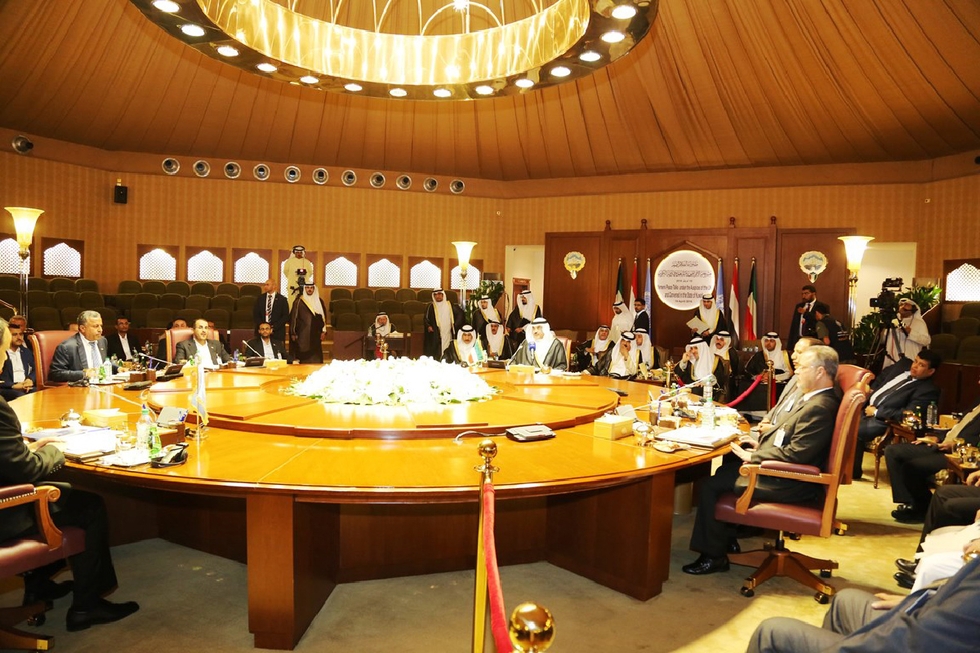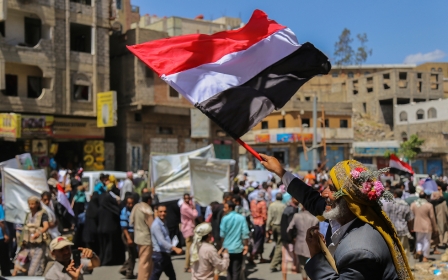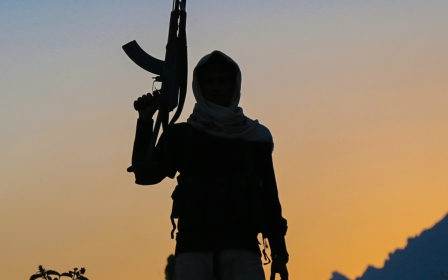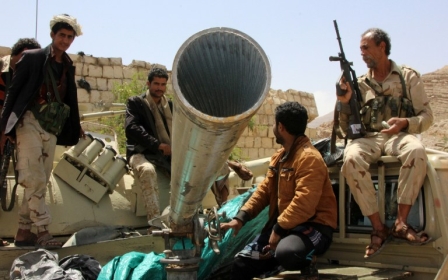Hard-won Yemen peace talks open with call for compromise

By Omar Hassan
UN-brokered peace talks to end 13 months of armed conflict in Yemen opened on Thursday in Kuwait with a call for compromise between the Houthi and government delegations from the impoverished state.
The talks were originally slated to start on Monday, but Houthi rebels stayed away in protest against alleged Saudi violations of a ceasefire, in effect since 11 April.
The delegation from the Shia Houthi militia and allied representatives of ex-President Ali Abdullah Saleh arrived just hours before the talks finally started.
Foreign Minister Sheikh Sabah al-Khaled al-Sabah of host country Kuwait opened the meeting by hailing the talks as "a historic opportunity" to end the bloodshed.
"War will only lead to more devastation, losses and displacement of people," he said.
UN Special Envoy Ismail Ould Cheikh Ahmed appealed to the warring parties to work to reach a comprehensive and durable accord.
"Today, you have one of two options, a secure nation that guarantees an honourable life or the ruins of a nation," he said.
Ould Cheikh Ahmed called for "compromise" solutions and stressed Yemen was "closer to peace than any time before".
The first session ended after less than two hours of talks, and the next round is set for Friday afternoon, a delegate told AFP.
More than 6,400 people have been killed and almost 2.8 million displaced since a Saudi-led Arab coalition began operations in March 2015 against the Shia rebels who have seized swathes of territory, including the capital Sanaa.
The UN has been pushing the talks that it hopes will end a conflict that has been exploited by hardliners and sent tensions soaring between Shia Iran and its Gulf Arab neighbours.
President Abd Rabbuh Mansour Hadi had sent a message to Ould Cheikh Ahmed rejecting "rebel conditions to modify the agreed agenda", according to a member of the government delegation.
Hadi's representatives arrived in Kuwait City at the weekend and threatened to pull out if meetings did not begin on Thursday.
Mahdi al-Mashat, a representative of rebel leader Abdulmalik al-Houthi, said on Wednesday the rebels had been assured the agenda for the talks would be "clear and tackle issues that could help achieve peaceful solutions".
Writing on Facebook, Mashat warned, however, that "we will have the right to suspend our participation" if the assurances are not met.
Diplomats say rebels are demanding an end of the Saudi-led coalition operations and a naval blockade on Yemen.
They also want UN sanctions against some of their leaders, including Saleh, to be lifted.
Saudi Arabia's ally Turkey said on Thursday that it has frozen assets belonging to Saleh and his son, in line with the sanctions.
Saleh amassed billions of dollars and stashed assets in at least 20 countries during his 33 years in power, according to a UN report released last year.
Talks 'allow Qaeda focus'
On Thursday, US President Barack Obama was in Saudi Arabia, where he was expected to discuss the wars in Yemen and Syria with Gulf leaders.
Ben Rhodes, one of Obama's closest foreign-policy advisers, urged Yemeni warring sides to participate "constructively" in the Kuwait talks.
A political solution would "allow for a focus on AQAP (Al-Qaeda in the Arabian Peninsula) in Yemen," he said.
Al-Qaeda and the Islamic State (IS) group have gained ground in the government-held south, carrying out attacks against officials.
Yemen's rebels seized control of Sanaa in 2014 before expanding, forcing Hadi's government to declare main southern city Aden as the temporary capital.
And while the loyalists have managed since July to reclaim large areas, they have been unable to dislodge the rebels from Sanaa and other key areas.
Fighting has continued on several fronts, military sources said, as each side blamed the other for truce breaches.
The rebels fired a Katyusha rocket late on Wednesday on the loyalist-held city of Marib, east of the capital, according to an AFP journalist there.
Pro-government military sources reported heavy fighting in Nahm, northeast of Sanaa, and sporadic clashes elsewhere.
The Houthis said on their sabanews.net website that coalition warplanes carried out two strikes on Nahm and flew sorties over other areas, including Sanaa.
New MEE newsletter: Jerusalem Dispatch
Sign up to get the latest insights and analysis on Israel-Palestine, alongside Turkey Unpacked and other MEE newsletters
Middle East Eye delivers independent and unrivalled coverage and analysis of the Middle East, North Africa and beyond. To learn more about republishing this content and the associated fees, please fill out this form. More about MEE can be found here.




